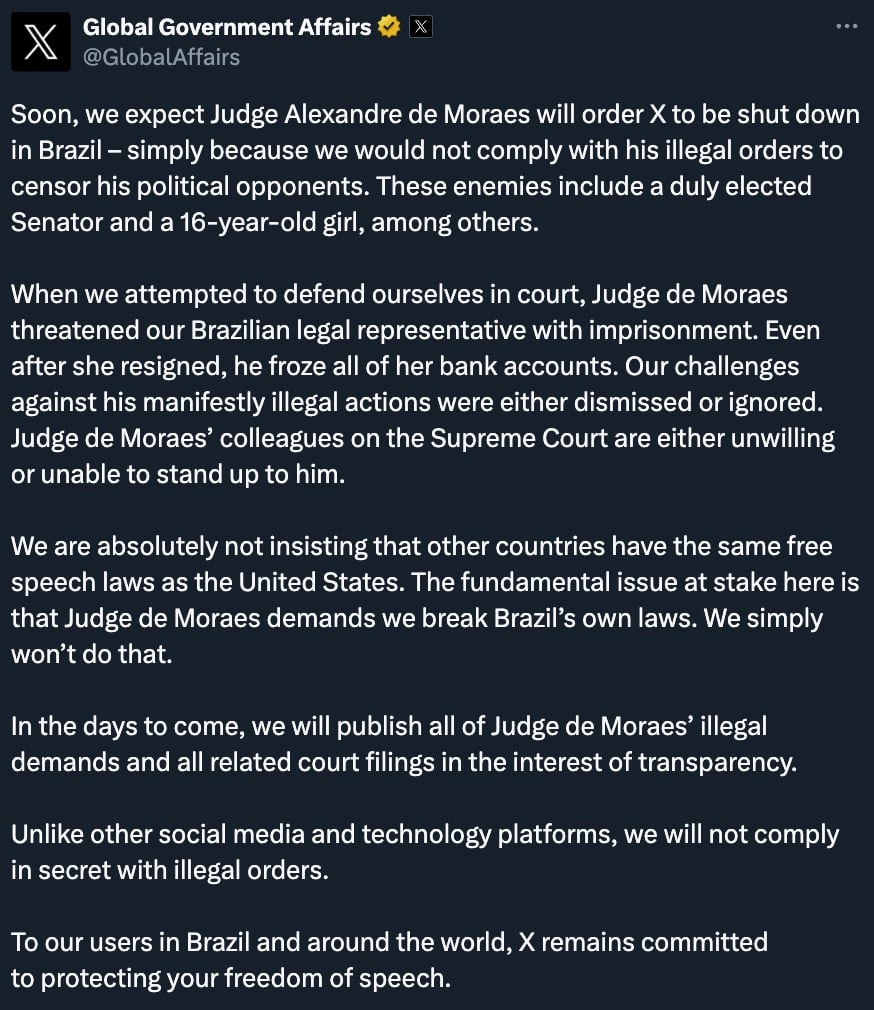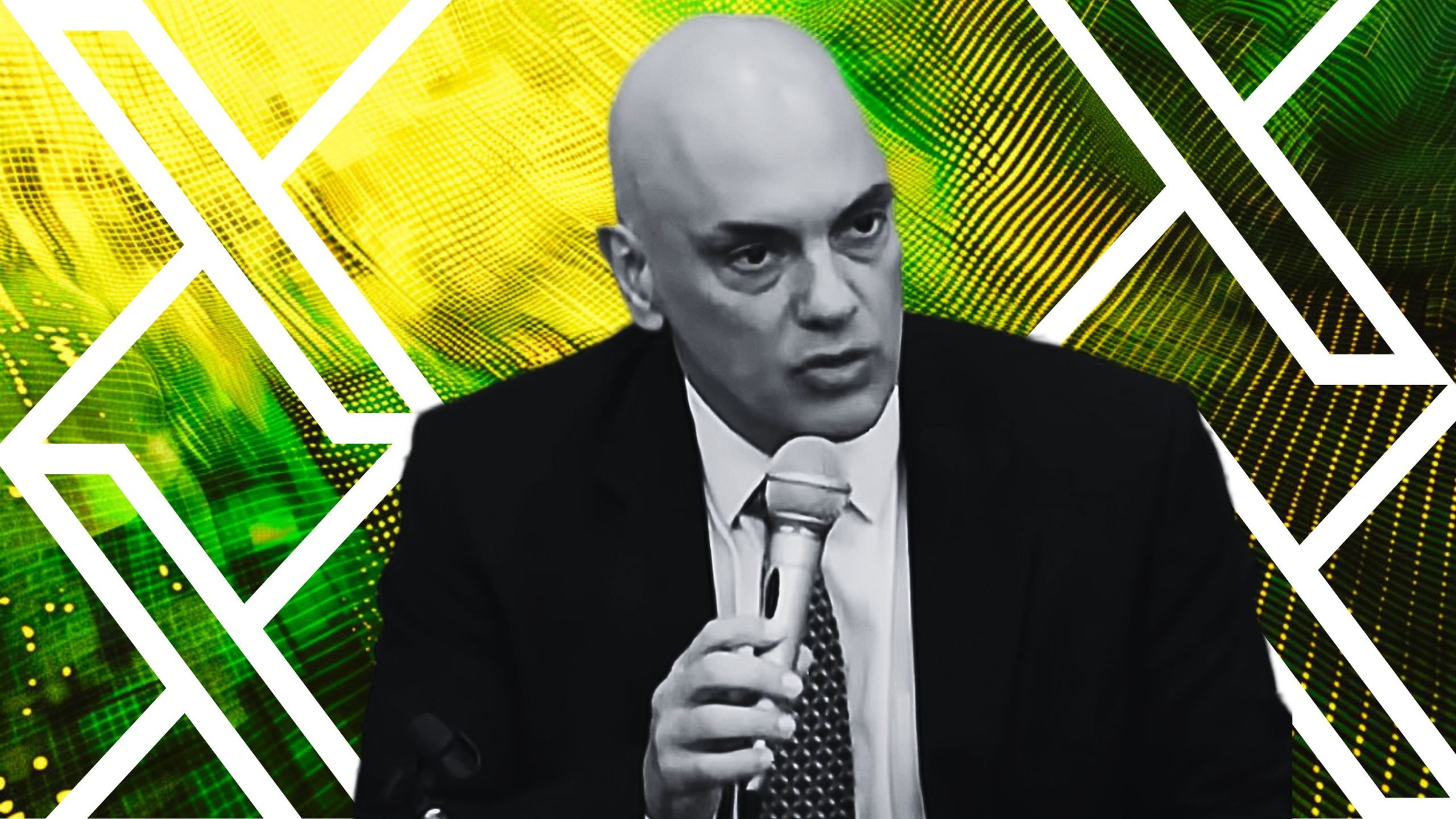Controversial Brazilian Supreme Court justice Justice Alexandre de Moraes has ordered the suspension of Elon Musk’s social media platform X in Brazil after Musk refused to appoint a legal representative in the country.
The Attorney General Jorge Messias backed Moraes’ decision, threatening to impose a fine of R$ 50 thousand ($8,900 USD) daily to any citizen that attempts to bypass the ban (such as using VPNs) to access X.
The decision marks a significant escalation in the ongoing conflict between Musk and the Brazilian judiciary after the social media platform refused to cave to Moraes’ demands to censor “misinformation,” and “hate speech” linked to critics of Brazil’s government led by President Luiz Inácio Lula da Silva.
Moraes issued a threat to Musk and X CEO Linda Yaccarino on Wednesday, stating that X could face a shutdown in Brazil if it didn’t name a local representative within 24 hours. X had shut down its operations in Brazil following the censorship demands, to protect staff after Moraes threatened them with arrest.
In response, X took to its official Global Government Affairs page late Thursday, claiming that it anticipated being shut down by de Moraes “simply because we would not comply with his illegal orders to censor his political opponents.”

Following the ban, Elon Musk posted, “Free speech is the bedrock of democracy and an unelected pseudo-judge in Brazil is destroying it for political purposes.”
In a statement, X CEO Linda Yaccarino stated, “This is a sad day for X users around the world, especially those in Brazil, who are being denied access to our platform.”
Yaccarino also added, “I wish it did not have to come to this – it breaks my heart. The Brazilian Constitution says, “Any and all censorship of a political, ideological and artistic nature is forbidden.” I hope for a day when the Brazilian government will live up to the Constitution that the Brazilian people ratified. But until there is change in Brazil, X will be shut down.”
The escalation is a troubling development for free speech, marking a significant escalation in governmental attempts to control online discourse. This order, which demands that X appoint a local legal representative and comply with censorship directives, represents a stark instance of government overreach. By targeting “misinformation” and “hate speech” specifically linked to government critics, the move suggests a politically motivated effort to stifle dissent—a core element of democratic societies.
Further compounding these concerns are the threats of legal repercussions against X’s leadership, including arrests of staff, which exemplify a worrying use of legal intimidation to enforce compliance. This not only threatens the principle of free expression but also establishes a chilling effect across digital platforms, potentially leading them to self-censor to avoid similar fates.
Brazil’s actions are also tapping into a dangerous international precedent, encouraging other governments to adopt similar restrictive measures against digital platforms. This could lead to a fragmented internet landscape where local government controls significantly hinder free speech across borders, undermining global digital freedoms.










